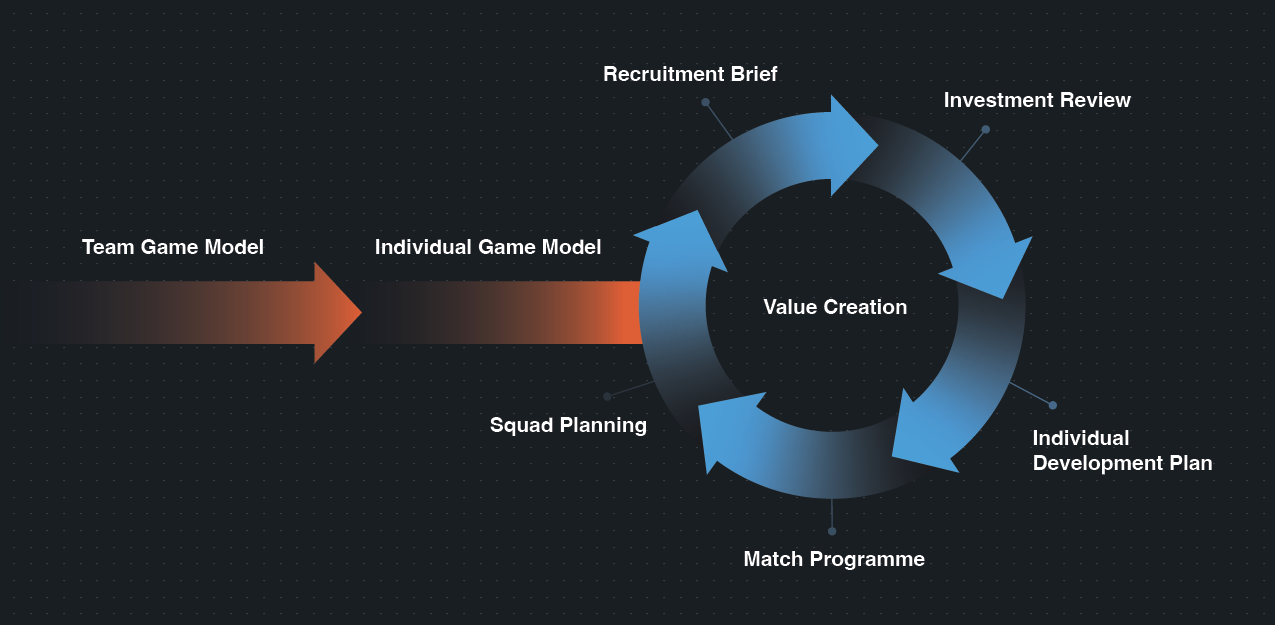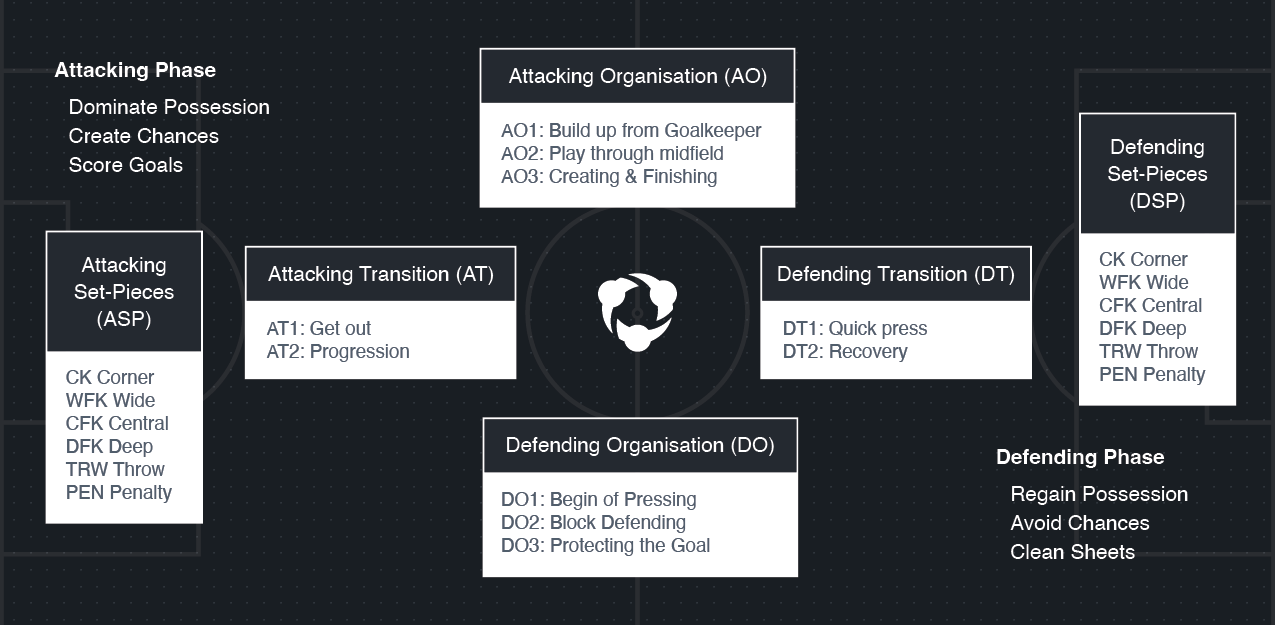Performance Technology Series - Team Identity


Team Identity
Identity is key for any successful team, whether it’s sports, business or politics. Organizations with a clear vision and a high sense of purpose work together in the pursuit of a common objective, perform more efficiently and communicate better. Whether the goal is winning on the pitch, increasing operational efficiency and/or creating a strong brand, having a strong Team Identity can yield a powerful competitive advantage.
-- --
An organization’s identity needs to be understood by employees, technical staff and players, and fully converted into the organization’s internal processes. So, building a structure that provides members of the team with the know-how and the training needed to embody the club’s identity allows full control of the process and savings in both time and budget.
In a football organization, identity is most commonly expressed by the Game Model, where the club culture manifests itself on the pitch. Then, a Code of Conduct helps to create the right environment for players and staff off the pitch and gives them guidelines on shared values and accepted behaviors.
Barcelona’s style of play was developed long before we arrived at the club, back in the 1950s when the Blaugrana’s ball movement revolutionized the more physical game of the time, and in the 1970s and 80s during the Dutch Total Football era of Johan Cruijff. This philosophy became an integral part of the club [...] our aim was to consolidate this approach in the process that took players from the youth team to the first team, making it a natural transition.
How to Build and Implement a Team Identity
- Capturing and transmitting the Game Model is a crucial step. At this level, education is key and video and data are the primary technology to build an ecosystem for shared know-how and create a framework for best practice. This starts by capturing the style of play and the orientation of players.
- Using your team’s unique Game Model, analysts can leverage Hudl’s connected suite of products to analyze matches and training. Downloading data from Hudl League Exchange or Wyscout, they can use Hudl Sportscode to create custom reports showing highlights that matter and explain how you want to play.

- Upload Game Model examples (see image above) onto the Hudl platform and share videos with specific events and tactics to your chosen custom groups. This means giving your team access to a development tool, promoting immediate reflection, and supporting coaching activity, easing the workflow between technical staff and players. The workflow seamlessly integrates Hudl.com with Hudl Sportscode, allowing data to flow freely between the two platforms. Plus, it also empowers your players to own their personal development, not relying on coaches to ‘do it for them’.
- Hudl Academy can be a shared platform for continuous learning for high performance practitioners and a training platform for your players, helping them familiarize themselves with performance analysis and statistics, teaching them how to use tools to review their own performance, study next opponents and share with them what the technical staff are going to measure. But it can also be a way for you to establish your legacy at the club, customizing it to create Team Identity specific education modules shared across football and non-football staff, leaving a legacy for the leaders and a succession management process that helps when employees change.



